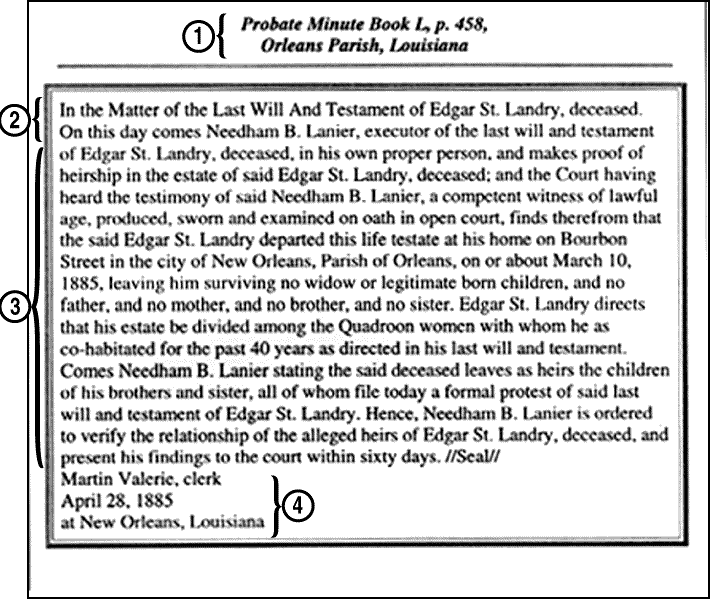
| 1. |
Minute book, page, and
location of court
|
| 2. |
Names of deceased and executor
|
| 3. |
Details, including death date
|
| 4. |
Clerk's signature, date and place
of hearing
|
|
In a Probate Minute Book 
|
